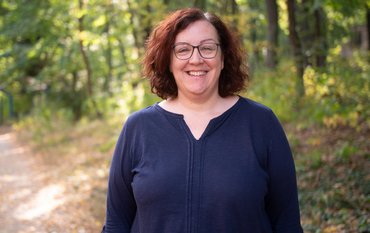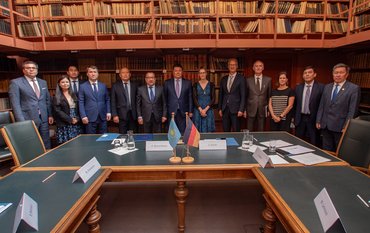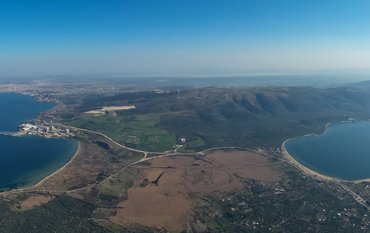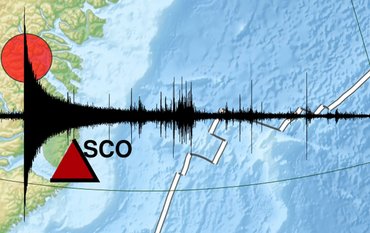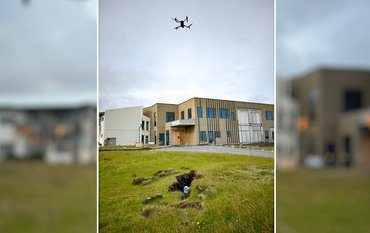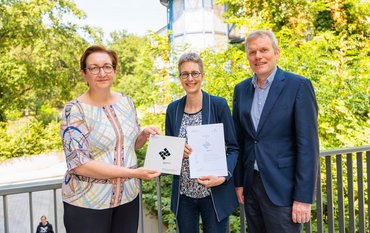At the first Machine Learning Hackathon of the GFZ on March 5, 2020, more than 40 researchers worked on the assessment of mineral concentrations of soil from infrared data and on the prediction of "earthquakes" in laboratory experiments. Machine Learning (ML) is a branch of data science in which algorithms "learn" patterns and trends from training data and then use them to process unknown data sets. In recent years, Machine Learning has seen successful applications in automatic speech, text and image recognition. Now, these techniques are becoming increasingly popular in Geoscience.
Researchers from all four GFZ departments and external guests from the Geo.X network in Berlin and Brandenburg took part in the first GFZ Machine Learning Hackathon. When estimating the mineral content of soil from infrared data, researchers were able to predict the concentration of certain minerals with up to 95 percent accuracy. When predicting artificial "earthquakes" in laboratory experiments, the participants managed to identify a sequence of laboratory earthquakes in the seismic data.
The hackathon was organized by the group "ML@GFZ", which was founded in August 2019 and usually organizes a jour fixe every first Tuesday of the month. "We are building a close cooperation between natural and data science in order to better understand processes in the Earth system," says Werner Köckeritz, Chief Information Officer of GFZ. "This creates a cross-sectional network for the application of artificial intelligence (AI). The use of AI methods, such as Machine Learning is, in my view, the future of Earth sciences".
The aim of the group is to further increase machine learning competences at GFZ and an expansion into a "Competence Centre Telegrafenberg" where an exchange of experience and joint activities with PIK, AWI and AIP take place. The exchange of experience with other people interested in Machine Learning within the Helmholtz Association is also important for "ML@GFZ": "The Helmholtz-AI platforms are now starting up", explains Frederik Tilmann, head of the GFZ section "Seismology". He represents the GFZ on the steering committee of the Helmholtz Artificial Intelligence Cooperation Unit (Helmholtz AI). "The Helmholtz AI platforms will also help to give more scientists access to AI methods to support their research". (ph)
GFZ Sections involved in the first GFZ Machine Learning Hackathon:
- Space Geodetic Techniques
- Remote Sensing and Geoinformatics
- Physics of Earthquakes and Volcanoes
- Seismology
- Geodynamical modelling
- Seismic Hazard and Risk Dynamics
- Geomicrobiology
- Lithosphere Dynamics
- Geomechanics and Scientific Drilling
- Hydrology
- Basin Modelling
- Geomorphology
- Earth Surface Process Modelling
- eScience Centre
Further information:



![[Translate to English:] [Translate to English:] Abror Gafurov von dem Schriftzug "Welcome to Azerbaijan" und den UN und COP Logos](/fileadmin/_processed_/2/5/csm_2024_11_Baku_COP29_Abror_Gafurov_1042faec82.jpeg)


![[Translate to English:] Martin Herold standing in front of the library on the Telegrafenberg](/fileadmin/_processed_/c/d/csm_Martin_Herold_d385ee4dd9.jpeg)
![[Translate to English:] Many people are listening to a presentation in the GFZ lecture hall.](/fileadmin/_processed_/c/a/csm_1_Bild1_hell_b9c0e9f5ed.jpeg)






![[Translate to English:] Both scientists sitting on stools in front of a wall of books in the Telegrafenberg library](/fileadmin/_processed_/6/6/csm_Buiter_Castell_DORA_4_e87cb1ea18.jpeg)
![[Translate to English:] Gruppenbild mit 4 Personen](/fileadmin/_processed_/8/d/csm_20241017_GFZ-Emmerman-Medal-005_web_reinhardtundsommer_21a414fa4a.jpeg)






![[Translate to English:] Ice landscape with five red tents](/fileadmin/_processed_/8/9/csm_Zeltlager_auf_dem_Eis_Urheberin_Jenine_McCutcheon_5ced2d523b.jpeg)


